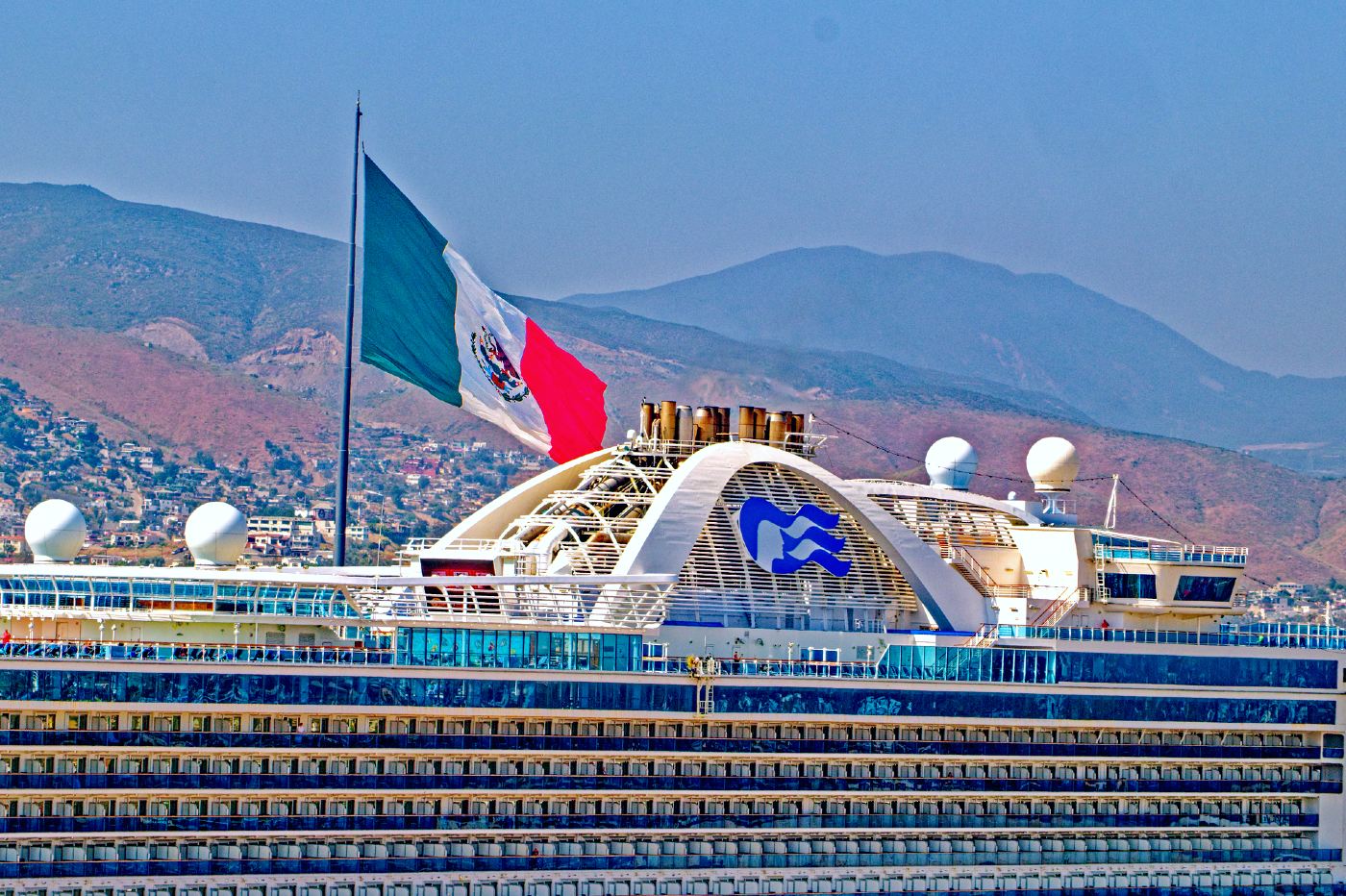A recent update to the U.S. State Department’s travel advisory for Mexico has caught the attention of many cruise travelers. On August 12, 2025, the advisory was updated to a “Level 2: Exercise Increased Caution” for the country as a whole.
But what does this mean for the ports on your cruise itinerary?
The main takeaway is that not all of Mexico falls into the same category. The advisory provides a different risk level for each state, and this is what matters most to a cruiser.
The overall warning is for “terrorism, crime, and kidnapping,” with the advisory stating, “The U.S. government has limited ability to help in many parts of Mexico. U.S. government employees are not allowed to travel to certain high-risk areas.”
This means U.S. citizens are advised to follow the same rules as government employees.
It’s important to remember that cruise lines are lazer-focused on safety and will not bring passengers to destinations they believe are unsafe. In fact, cruise lines like Royal Caribbean are even expanding their presence in Mexico, with projects like Perfect Day Mexico and Royal Beach Club Cozumel.
This kind of major investment suggests that cruise lines have confidence in the security of these key destinations.
The good news is that most major cruise ports are in states with lower risk levels than some of the country’s inland areas.
Over 9 million cruisers visited Mexico in 2024, according to recent data. Upwards of 10 million guests are expected in 2025.
Here is a more detailed look at the advisories for some of the most popular cruise stops.
These popular Caribbean ports are in the state of Quintana Roo, which has a Level 2: Exercise Increased Caution advisory.
The advisory mentions a risk of violent crime, including shootings between rival gangs that have injured and killed innocent bystanders. However, the advisory also states that the tourism industry is well-regulated in these areas, and local authorities work to protect visitors. When visiting Cozumel or Costa Maya, it is recommended to stick to well-known tourist areas and exercise more caution in downtown areas, especially after dark.
This port is a great example of the difference in risk levels across Mexico. Progreso is in the state of Yucatan, which has the lowest possible advisory of Level 1: Exercise Normal Precautions. This means travelers should take the same basic safety steps they would anywhere else in the world. So, no problem here.
This favorite Pacific coast destination is in the state of Baja California Sur, which is also at a Level 2: Exercise Increased Caution. The advisory is similar to that for Quintana Roo, focusing on general crime concerns.
Local officials in the Cabo area have been trying to increase security, including adding more security personnel and surveillance, to protect the tourism industry. After all, a loss of tourism means less revenue for the state.
This port is in the state of Baja California, which has a Level 3: Reconsider Travel advisory. The advisory mentions violent crime, terrorism and kidnapping, especially in non-tourist areas.
The advisory states that “travelers should remain on main highways and avoid remote locations.” The good news is that there are no additional travel restrictions for U.S. government employees in the following areas: Tijuana, Ensenada, and Rosarito.
This port is in the state of Jalisco, which is also at a Level 3: Reconsider Travel. The advisory for Jalisco is more serious, warning of violent crime and a potential risk from gangs. For this reason, cruise lines and travel experts often suggest that cruisers in Puerto Vallarta participate in organized shore excursions, as they offer a more structured and secure way to explore the area.
These ports are in states with the highest risk level, Level 4: Do Not Travel. Manzanillo is in the state of Colima, Mazatlán is in Sinaloa, and Acapulco is in Guerrero. The advisory for these areas is very serious, with Acapulco’s state of Guerrero specifically noting a risk of violence from “terrorist groups, cartels, gangs and criminal organizations.”
This is the most severe warning, and it means the U.S. government has very little ability to help its citizens in an emergency there. Due to this high risk level, cruise lines may modify their itineraries or advise passengers to exercise extreme caution if they visit these ports. In regards to Manzanillo the advisory states, “Travel only to the central tourist and port areas of Manzanillo. Primary tourist areas include the historic city center and Malecon, the hotel zone, the Peninsula Santiago or Las Hadas area, and the Club Santiago Peninsula area.”
Pay attention to any updates from your cruise line as your cruise date gets closer. Sticking with shore excursions through the cruise line will help ensure your safety in addition to helping the cruise line keep in touch with tour operators. A recurring theme in this report focuses on those “off the beaten path” areas. In most cases the bustling touristy areas are still safe as local authorities work hard to keep that tourism money coming in.
Looking for the Best Cruise Deals?
Search Multiple Sites at Once
Instant Real Time Pricing
Search Now
Two brothers started Cruise Fever in 2011 when they decided they couldn’t stop cruising so they might as well write about it. Do you have Cruise Fever too? Follow along on this incredible voyage!
© 2011-2025, Cruise Fever ®. All rights reserved




